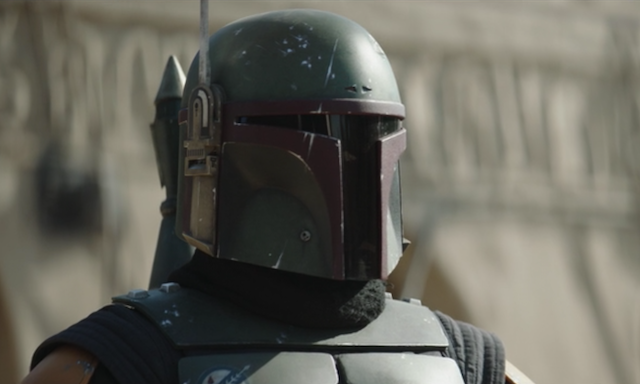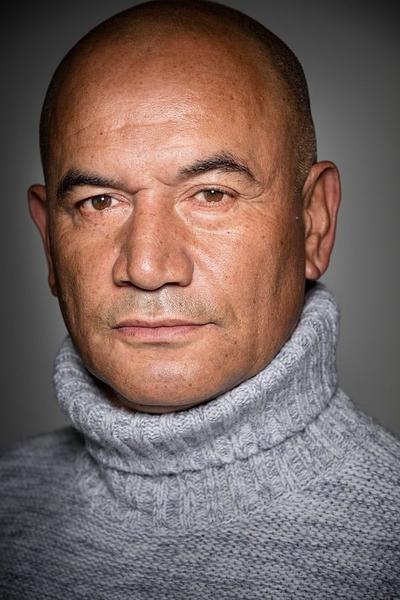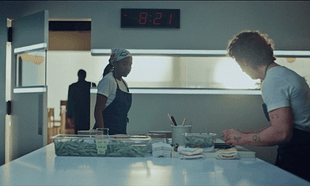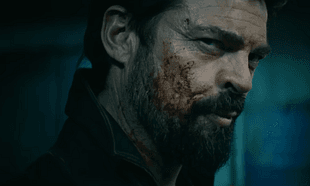If you've never watched Mel Brooks' hilarious, genre-defining send-up of old-school Westerns, you're missing out on 90-odd minutes of the finest comedy ever put on screen.
The ending of 'Blazing Saddles' is a fourth-wall-breaking masterpiece of slapstick comedy, wherein cowboys battle cowboys, pies are mercilessly destroyed in people's faces, it cuts to an all-singing, all-dancing musical which is then interrupted by said cowboy brawl, and also features a fourth-wall-breaking moment where Hedy Lamarr escapes in a taxi from the Warner Bros. lot.
Obviously, the ending of 'The Book of Boba Fett' is not that tongue-in-cheek, nor does it break the fourth wall for the sake of comedy either. Yet, in watching the hour-long extravaganza, you get the sense that just about everything held back from the previous episodes is being fired onto the screen to make up for both the two-episode detour away from the main character's story, and for the admittedly leaden pace it's all moved at.
The final showdown between the Pyke Syndicate and the shaky alliance between the people of Freetown and Boba Fett's crew was always going to be a big moment, but the scale that director Robert Rodriguez puts it at is interesting. It marries together both good old-fashioned showdown Western with city-destroying monster mania, by bringing in both Cad Bane and that pet rancor that Boba Fett had lying around his palace with the help of Danny Trejo. If the complaint made against 'The Book of Boba Fett' is that people just turn up and we're all expected to clap, so be it because nothing makes an entrance like a pissed-off rancor destroying a city block with a bounty hunter on its back.
Much of the final episode is made up of the theme of reunions between adoptive fathers and sons. Although it isn't fully explained in the episode, Cad Bane and Boba Fett have a shared history. More specifically, Cad Bane was pretty much Boba Fett's mentor, meaning their showdown was effectively a father-and-son reunion. As for Din Djarin and Grogu, their reunion is much less fraught with anger and violence. Yet, you almost feel like it's brushed over because of the pace of the action and everything else happening that it doesn't get a chance to sit.
Rodriguez's direction ping-pongs all over the place, going from moments of heartfelt emotion, to intense showdowns, to eardrum-shattering explosions as the gunfight at Mos Espa spills out of control before the rancor turns up and turns the tide of the fight and then it becomes a monster movie. Although the gear changes might seem to be too much to handle, the episode moves so fast that you're not given a chance to question any of it.
If there's to be another season of 'The Book of Boba Fett', Lucasfilm really needs to get itself a writer and stop shoving all of its TV work on to Jon Favreau. It's not that he's an unskilled writer, but given how thin 'The Book of Boba Fett' has been in quite a few parts, it wouldn't hurt to have a few other hands take a swing. It's not that it needs more exposition, or more dialogue, or even more characters. The sparse nature of Westerns is what they're trying to evoke here, and they've done that successfully, but it can be beefed up. It could be that Boba Fett, as a character, didn't have all that much there to begin with. 'The Mandalorian' was a fresh slate; a new character that only requires the most basic, essential components in order to tell its story. Boba Fett, on the other hand, has a storied history and with it comes preconceived notions.
So much of the show has been made up of filling in the blanks, answering long-held questions, but now that it's all over, where does it go from here?
Final Thoughts
- Luke Skywalker deciding to loan Grogu his X-Wing is definitely something that needs further discussion, but not here and not now
- Again, very cool to see Thundercat part of the 'Star Wars' universe and bringing Marshal Vanth back to life
- Can we move the next 'Star Wars' series off of desert planets, please? 'Andor', we're looking in your direction





















































































